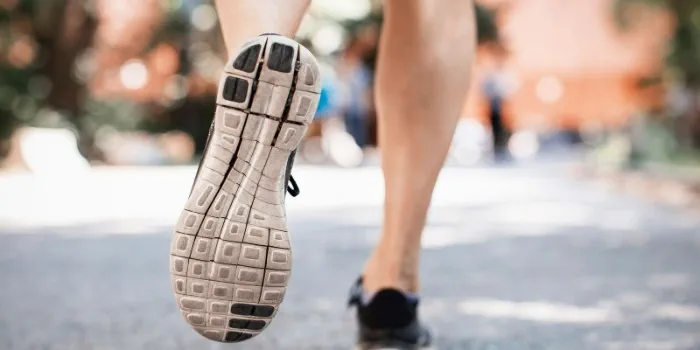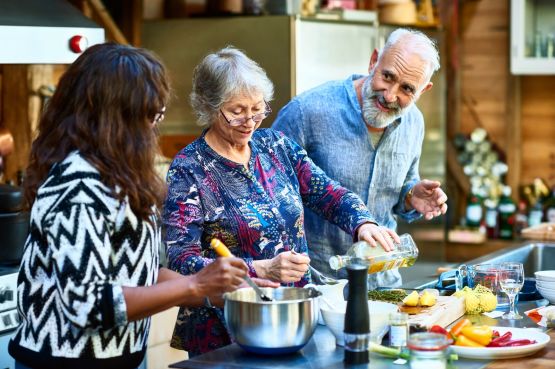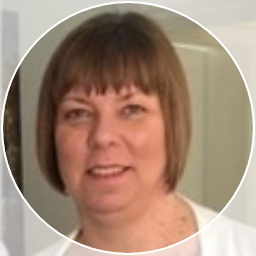What are varicose veins?
Varicose veins are swollen, enlarged veins that usually appear on your legs. For most people they don’t cause any symptoms. Here, I talk about what treatments are available for varicose veins and offer some self-help tips to improve your symptoms.

What causes varicose veins?
Varicose veins happen when blood doesn’t flow properly through the veins closest to the surface of your skin.
We all have valves inside our veins that help blood flow in the right direction. If you have varicose veins, the valves don’t work as they should. This makes blood gather in the veins near the surface of the skin. It also increases the pressure on your veins and makes them swell.
When this happens, veins become visible through your skin. You’re more likely to get varicose veins if you’re a woman, and as you get older.
This animation shows and describes how varicose veins form. Varicose veins are swollen veins that area blue or purple colour. They show through the skin, usually on the legs and feet.
The superficial veins lie below the surface of the skin. The deep veins pass through the deep tissues of the legs. They transport blood from the legs and feet back up towards the heart. The superficial and deep veins are connected by perforator veins.
The video shows the position of the deep veins, superficial veins and perforator veins in the leg.
The deep veins run between the muscles of the legs. Contractions of these muscles when you move your legs and ankles help to squeeze the blood back up towards your heart.
Veins also have valves that prevent the blood from flowing back towards your feet.
The video shows a valve and the muscles around the vein.
Varicose veins are thought to develop when the valves don't close properly.
The video shows a valve in a superficial leg vein.
If the valves don't work properly, the blood is able to flow backwards. Blood pools in the vein, causing the vein to stretch. This is called a varicose vein.
The video shows a vein that has become varicose. We also show a varicose vein in the lower leg.
Varicose veins may cause symptoms such as aching, itchiness or swelling of the ankles. However, often they don't cause any symptoms. The main problem is usually their appearance.
If you can see fine veins on other parts of your body, like your nose or cheeks, these might be telangiectasias (also known as thread or spider veins). They generally don’t cause any health problems. Speak to your doctor for more information on spider vein treatment.
What are the symptoms of varicose veins?
You might only know you have varicose veins because of the visible veins in your legs. But if you do have other symptoms, they can include:
- an aching or heavy feeling in your legs
- cramping, especially at night
- restless legs
- itching or burning in the skin over your veins
- swollen feet and ankles
- itchy, red, scaly or flaky skin on your legs (known as varicose eczema)
Varicose veins can sometimes bleed. If this happens visit your doctor.
Symptoms tend to be worse after standing up for a long time. You might also find they’re worse during your period, if you have one.
Varicose veins are also common during pregnancy. They aren’t harmful to your baby and you might find that they improve after pregnancy.
If your symptoms are affecting you, visit your doctor to see how they can help.
Are varicose veins dangerous?
Varicose veins are generally not dangerous, and complications are unlikely. But, they can increase your risk of:
- superficial vein thrombosis (when a blood clot forms in the veins close to the surface of the skin, making them hard, red and painful)
- bleeding
- venous leg ulcers (open wounds) on your legs
- deep vein thrombosis (DVT) – when a blood clot forms in a deep vein
Can varicose veins go away without treatment?
It’s unlikely that varicose veins will go away without treatment. But, there are a few things you can do that might reduce your symptoms.
- Try losing any excess weight.
- Increase the amount of activity you do.
- Try not to stand up or sit down for long periods of time.
- Keep your legs slightly raised when you do sit down.
- Wear compression stockings (only if you’re not having any other treatment).
- If you have dry or itchy skin on your lower legs, special moisturisers can help. Ask your doctor or local pharmacist.
What treatments are available for varicose veins?
For most people, varicose veins don’t cause any health problems. But, if you’re unhappy with the way they look, there are treatments available.
Endothermal ablation is often used to treat varicose veins. It uses radio waves or lasers to seal the veins and improve their appearance.
Surgery is also an option. A surgeon can tie off and remove the varicose veins to stop blood flowing through them.
Sclerotherapy can also improve their appearance. A chemical foam is injected into the affected veins, which damages the varicose veins and makes them close up.
Do you know how healthy you truly are? Bupa health assessments give you a clear overview of your health and a view of any future health risks. You'll receive a personal lifestyle action plan with health goals to reach for a happier, healthier you.
-
Sources Sources
- Varicose veins. NICE Clinical Knowledge Summaries. Nice.org.uk, last revised February 2020.
- Sandean DP, Winters R. Spider Veins. 2022 Sep 19. In: StatPearls [Internet]. Treasure Island (FL): StatPearls Publishing; 2022 Jan. Bookshelf ID: NBK563218.
- Varicose veins. NICE Clinical Knowledge Summaries. Nice.org.uk, last revised February 2020.
- BMJ Best Practice. Bmj.com. Topics. Varicose veins: approach, accessed October 2022.
- Medscape. Varicose Veins and Spider Veins: overview. Medscape.com. Last updated September 2020.
- Varicose veins: complications. BMJ. Best Practice. Bmj.com, accessed October 2022.
- Venous eczema. British Association of Dermatologists. bad.org.uk. accessed October 2022.
About our health information
At Bupa we produce a wealth of free health information for you and your family. This is because we believe that trustworthy information is essential in helping you make better decisions about your health and wellbeing.
Our information has been awarded the PIF TICK for trustworthy health information. It also follows the principles of the The Information Standard.

More general health advice articles
Did you find our advice helpful?
We’d love to hear what you think. Our short survey takes just a few minutes to complete and helps us to keep improving our healthy lifestyle articles.
Legal disclaimer
This information was published by Bupa's Health Content Team and is based on reputable sources of medical evidence. It has been reviewed by appropriate medical or clinical professionals and deemed accurate on the date of review. Photos are only for illustrative purposes and do not reflect every presentation of a condition.
Any information about a treatment or procedure is generic, and does not necessarily describe that treatment or procedure as delivered by Bupa or its associated providers.
The information contained on this page and in any third party websites referred to on this page is not intended nor implied to be a substitute for professional medical advice nor is it intended to be for medical diagnosis or treatment. Third party websites are not owned or controlled by Bupa and any individual may be able to access and post messages on them. Bupa is not responsible for the content or availability of these third party websites. We do not accept advertising on this page.







